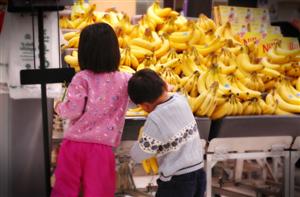Children as family participants: negotiating food practices in everyday family life

Principal Investigator:
Allison James (Sociological Studies)
Penny Curtis (Nursing and Midwifery)
Researcher:
Katie Stubbs
Aims and objectives:
This project explores children´s participation in the everyday practice of family life. `Doing´ family is considered as the ongoing and dynamic social relationships through which `being a family´ is realized and the project explores children´s perspectives on that process. Focusing on food and eating practices in and across different forms of family and different family styles the project looks both at 11-12year old children´s experiences and perceptions of their contribution to the family through the everyday negotiations that take place with parents and other family members over food.
Research questions:
This projects uses food and eating practices to:
- explore the changing dynamics of everyday family life as perceived by children and by parents
- explore children’s perception, and that of their parents, of children’s contribution to those changing dynamics
- explore these issues across a range of different family forms (viz: families with sibling groups of at least 3, families with only one child, single parent families)
- locate children’s everyday experiences of and participation in family life within broader social and cultural contexts (viz: social class, ethnicity, families with restricted dietary practices such as vegetarianism etc)
Research design:
The project design will enable us to focus on the family as a shared and negotiated set of dynamic relationships that take place in everyday life through the participation of its members – minimally children and parents. It recognizes, however, that families are located in broader social and cultural milieu of various kinds and that family members participate in these both as families (in terms for example of their membership of religious or ethnic minorities, social class position, moral values and belief systems) and as individuals (in terms of employment, leisure activities, friendship networks etc). In asking about children´s experiences of and contribution to making `family´, and using food practices as a focus for this, the project explores two main issues. First, from the perspective of children, what ideas, beliefs and practices do they take from `the family into other contexts, such as school, peer groups and leisure spaces; second, as active contributors to the everyday life of their own families what do children bring to the family from their participation in these other contexts and how is that negotiated or managed within the family. In addition the projects design recognizes that different families will take different forms, both in terms of their structure and life-styles, that will involve different constraints and opportunities for children´s involvement.